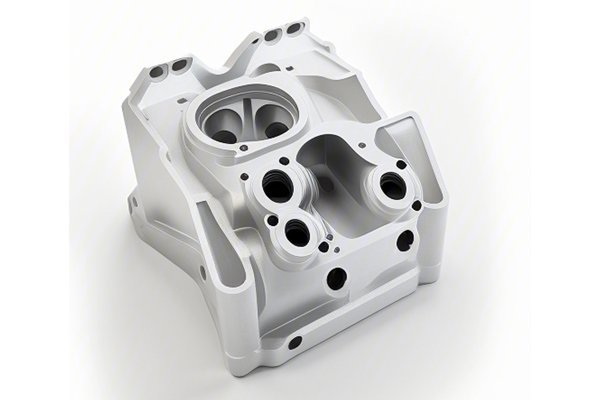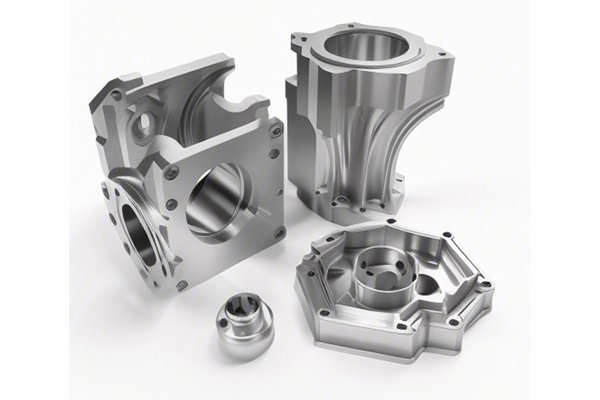Did you know that the global CNC machining market is projected to reach a staggering $100 billion by 2025? As industries continue to evolve and innovate, the demand for precision engineering, resulting in heightened interest in CNC (Computer Numerical Control) milling services, is rapidly increasing. With so many CNC milling companies out there, the choice can be daunting. How do you narrow down your options and select the right partner for your project? This blog will explore the critical technical requirements you should consider when choosing a CNC milling company, helping you make informed decisions that ensure quality, accuracy, and reliability.
Understanding CNC Milling
Before diving into the factors that should influence your decision, let’s briefly discuss what CNC milling entails. CNC milling is a sophisticated manufacturing process that utilizes computer-controlled machinery to create precise parts from a variety of materials, including metals, plastics, and woods. The CNC milling machine’s accuracy depends largely on how well the company operates, the technology they use, and their adherence to industry standards.
With this understanding, let’s explore essential technical requirements that can facilitate your decision-making process when selecting a CNC milling company.
One of the most crucial factors to consider is the technological capabilities of the CNC milling company.
a. Equipment Quality
Examine the types of CNC machines the company operates. Advanced milling machines, like 5-axis CNC machines, allow for more intricate designs and precision than standard 3-axis machines. The company’s use of current technology affects the quality and lead time of your project.
b. Software Proficiency
In addition to hardware, consider the software the company utilizes. CNC programming software like Mastercam or SolidWorks is essential for design, simulation, and generating tool paths. A company well-versed in these tools can optimize designs for manufacturing efficiency.
c. 3D Printing Integration
Given the rise of additive manufacturing, a company that can integrate CNC milling with 3D printing can provide you with advanced solutions, offering prototypes and parts produced from both processes for enhanced performance.
The ability to work with different materials is critical. When evaluating a CNC milling company, inquire about the range of materials they can mill.
a. Familiarity with Specific Materials
Different materials require different milling techniques and tooling. For instance, milling brass and aluminum requires distinct approaches given their differing machinability. Companies well-versed in handling a broad range of materials will enable you to experiment with different options in your designs.
b. Material Sourcing
Additionally, consider the company’s ability to source quality materials. A company with established relationships with material suppliers can often provide better pricing and shorter lead times.
Precision is non-negotiable in CNC milling. Investigate the company’s precision capabilities and tolerance standards.
a. Measuring Techniques
Employing Gage and inspection technologies like CMM (Coordinate Measuring Machines) indicates a commitment to quality. Ask for information regarding their measurement methods. Companies that ensure rigorous checking of precision and tolerances are more likely to deliver high-quality work.
b. Certification
Look for companies that adhere to ISO 9001 or AS9100 standards. These certifications showcase the company’s commitment to maintaining high precision and quality across all processes.
Experience matters. Companies with a long-standing history tend to have refined processes and seasoned staff.
a. Industry Specialization
Depending on your industry, it can be advantageous to work with a company that specializes in your required field. For example, a company experienced in automotive parts might have insights and practices that accelerate your project delivery, ensuring higher quality outcomes.
b. Case Studies and Testimonials

Research the company’s past projects and ask for case studies or testimonials. Evaluating their previous work in detail will provide insights into their capabilities and reliability.
While cost should not be the primary determining factor, it is essential to evaluate overall cost-effectiveness.
a. Transparent Pricing Models
A reputable CNC milling company will provide transparent pricing that details costs for milling, materials, and any additional services. Understand the entire breakdown to make informed comparisons.
b. Value versus Price
Consider the value you receive for the price. Sometimes, the cheapest option is not the best if it compromises quality, leading to additional costs down the line.
Understanding production capabilities is vital for planning your project timeline.
a. Capacity
Inquire about the company’s production capacity to ensure they can handle your order size effectively. Companies that continually invest in increased capacities typically fulfill larger orders without issues.
b. Lead Time Management
Know the company’s lead time for various types of projects. It’s crucial to align their timeline with your project deadlines to avoid unnecessary delays.
The CNC milling process doesn’t end with milling. Some companies offer post-machining services that can be advantageous.
a. Surface Finishing Options
Services such as anodizing, coating, or polishing can enhance the final product quality. A company offering these services can streamline your supply chain, offering more comprehensive solutions.
b. Assembly Services
If your project requires assembly, consider a company that provides assembly services post-milling to reduce complexity and increase efficiency.
Having a partner that offers robust technical support is vital, particularly when navigating any production issues.
a. Customer Support Team
Ensure that the company has a responsive customer service team that can assist you throughout the project. Clear communication can resolve problems quickly, mitigating disruptions.
b. Design Assistance
Some CNC milling companies provide design assistance and consultation. Working collaboratively in the early stages can improve the quality of the end product.
Choosing a CNC milling company isn’t merely about selecting a provider; it’s about finding a strategic partner that aligns with your project’s goals. By focusing on factors such as technological capabilities, material versatility, precision and tolerance standards, experience, cost-effectiveness, production capabilities, post-machining services, and technical support, you stand a much better chance of finding a reliable and proficient partner.
Researching these technical requirements thoroughly will help ensure that you don’t just meet your project deadline but also achieve the precision and quality that your end products demand. As industries evolve, investing time and resources to select the best CNC milling partner will pay dividends in the long run—leading to exceptional products and sustained business growth. Remember, the right CNC milling company is not only a vendor but a critical collaborator in your manufacturing success!






